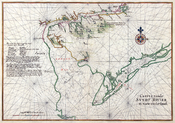WHEN industry was made honorable in Holland, the feudal system began to decay. It was a system embracing large land-owners, whose tenants were military men who controlled all labor and bore allegiance to the lordly proprietor. In the new era which had gradually dawned in Holland, the owner of the soil was no longer the head of a band of armed depredators who were his dependants, but the careful proprietor of broad acres, and devoted to industry and thrift. The nobles who composed the landlord class gradually came down from the stilts of exclusiveness, and in habits and even costume imitated the working people. The latter became elevated in the social scale. Their rights were respected, and their value in the state was duly estimated. Ceaseless toil in Holland was necessary to preserve the hollow land from the invasion of the sea, and the common needs assimilated all classes in a country where all must work or drown.
It was this state of society in Holland which stimulated agricultural interests in New Netherland, and changed trading into farming communities. This impulse was much accelerated by a charter of "Privileges and Exemptions" given by the Dutch West India Company in 1629, for the purpose of encouraging agricultural settlements on their American domain. They reserved the lands on and around the island of Manhattan, which they called the commercial emporium of the province, and required that all products for exportation should first be brought there. To persons who were disposed to settle in any other part of the province, the Company offered as much land as each emigrant might be able to improve, with "free liberty of hunting and fowling," under the direction of the provincial governor. They also offered to every person who should "discover any shores, bays, or other fit...


